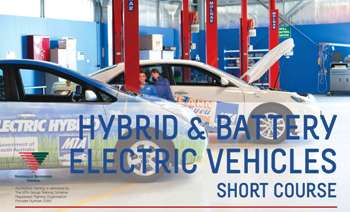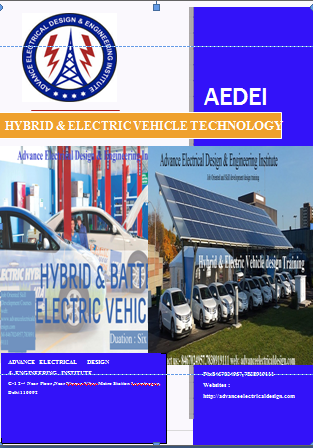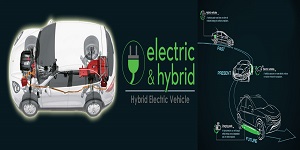Electric Vehicle Design Course
AEDEI has aim is to provide Training on Electric Vehicle based on new technology for the future.
The course will deal with electrical vehicle design including the design of the vehicle components, system level design and optimization as well as the infrastructure design.
The course is given by internationally known academics that both have about 10-year experience on Electric vehicle Design engineering, electro-mechanics and power electronics.
The hosting faculty, Having practical experience , has worked on rotor dynamics, electro-mechanics, electrical machines. has worked on rotor dynamics, electrical vehicles, and energy efficiency of electro-mechanical power transmission systems in electrical busses and ships.
Aedei is committed to delivering high quality of education on Electric Vehicle Design with a
mission to Design a practical Projects on Electric Vehicles.
USE Full view points
- Understand the electrical vehicle
functions and will be able to
recognize various components
required for different electrical
vehicles.
- Be able to choose components for a
given electrical vehicle design and
dimension them according to the
specification.
- Understand the requirement for
the infrastructure, including various
charging and power distribution
solutions, required for electrical
vehicles.
- Be competent to evaluate an
electrical vehicle design and
infrastructure, design using
simulation tools.
- Be able to use software simulation
tools for vehicle modelling

Who should attend:
Anybody
who wants to gain valuable hands-on experience, especially electrical
and mechanical engineers; electrical and general contractors, electrical
designers, solar companies and solar industry professionals who want to
further their knowledge of solar design.
Prerequisites: Participants
should have a basic understanding of solar PV or basic solar design, PV
installation or related experience. Participants should also have
Basic knowledge of electrical.
What time: - Weekend Batch : Saturday and Sunday
- Time : 4 Hours/per day
- Duration: 2 Months
How much: The fee is Rs 25,000 per person. Fee includes course materials.
How to Register:
We offer the following options to register for this class. Class size
is limited, so we recommend that you register early to guarantee a seat.
1. Online - click on the Enroll Now
button below and register using a credit card or check card. You will
be redirected to our online payment page for a safe, secure transaction.
You will receive an email confirmation when the transaction is
complete.
2. By phone – simply call us at (+91)-8467024957 and we'll process your registration over the phone.
Syllabus of Electric Vehicle Design Course

|
Chapter 1 - Introduction: Electric Vehicle
- History
- Components of Electric Vehicle
- Comparison with Internal combustion Engine : Technology
- Comparison with Internal combustion Engine: Benefits and Challenges
- EV classification and their electrification levels.
- EV Terminology
Chapter - 2 Motor Torque Calculations For Electric Vehicle
- History
- Components of Electric Vehicle
- Comparison with Internal combustion Engine : Technology
- Comparison with Internal combustion Engine: Benefits and Challenges
- EV classification and their electrification levels.
- EV Terminology
Chapter- 3 Electric Vehicle Architecture Design
- Types of Electric Vehicle and components
- Electrical protection and system requirement
- Photovoltaic solar based EV design
- Battery Electric vehicle (BEV)
- Hybrid electric vehicle (HEV)
- Plug-in hybrid vehicle (PHEV
- Fuel cell electric vehicle (FCEV)
-
- Electrification Level of EV
- Comparison of fuel vs Electric and solar power
- Solar Power operated Electric vehicles
Chapter 4 - Electric Drive and controller
- Types of Motors
- Selection and sizing of Motor
- RPM and Torque calculation of motor
- Motor Controllers
- Component sizing
- Physical locations
- Mechanical connection of motor
-
- Electrical connection of motor
Chapter 5 - Energy Storage Solutions(ESS)
- Cell Types (Lead Acid/Li/NiMH)
- Battery charging and discharging calculation
- Cell Selection and sizing
- Battery lay outing design
- Battery Pack Configuration
- Battery Pack Construction
- Battery selection criteria
|
Chapter 6 -Battery Management System(BMS)/Energy Management System (EMS)
- Cell Types (Lead Acid/Li/NiMH)
- Battery charging and discharging calculation
- Cell Selection and sizing
- Battery lay outing design
- Battery Pack Configuration
- Battery Pack Construction
- Battery selection criteria
Chapter 7 -Control Unit
- Function of CU
- Development Process
- Software
- Hardware
- Data Management
- GUI/HMI
Chapter 8- Electric Vehicles charging station
- Type of Charging station
- Selection and Sizing of charging station
- Components of charging station
- Single line diagram of charging station
Chapter 9 - INDIAN and GLOBAL Scenario
- Technology Scenario
- Market Scenario
- Policies and Regulations
- Payback and commercial model
- Payback and commercial model
- Polices in India
Chapter 10 - Selection and sizing of AC /DC Side Earthing
- Types of earthing
- Types of Earthing strip/ ground conductor
- Types of Vertical electrodes
- Sizing of Cross section area of GI strip
- Resistance calculation of GI strip
- Resistance calculation of Pipe electrode
- Solar Plant resistance calculation
- Preparation AC /DC earthing layout
ef. Std. IEC IEC 60068-2 (1,2,14,30),IEC
61683,IEC 60227,IEC 60502 IEC 60947 part I,II, III ,IEC 61215
|


